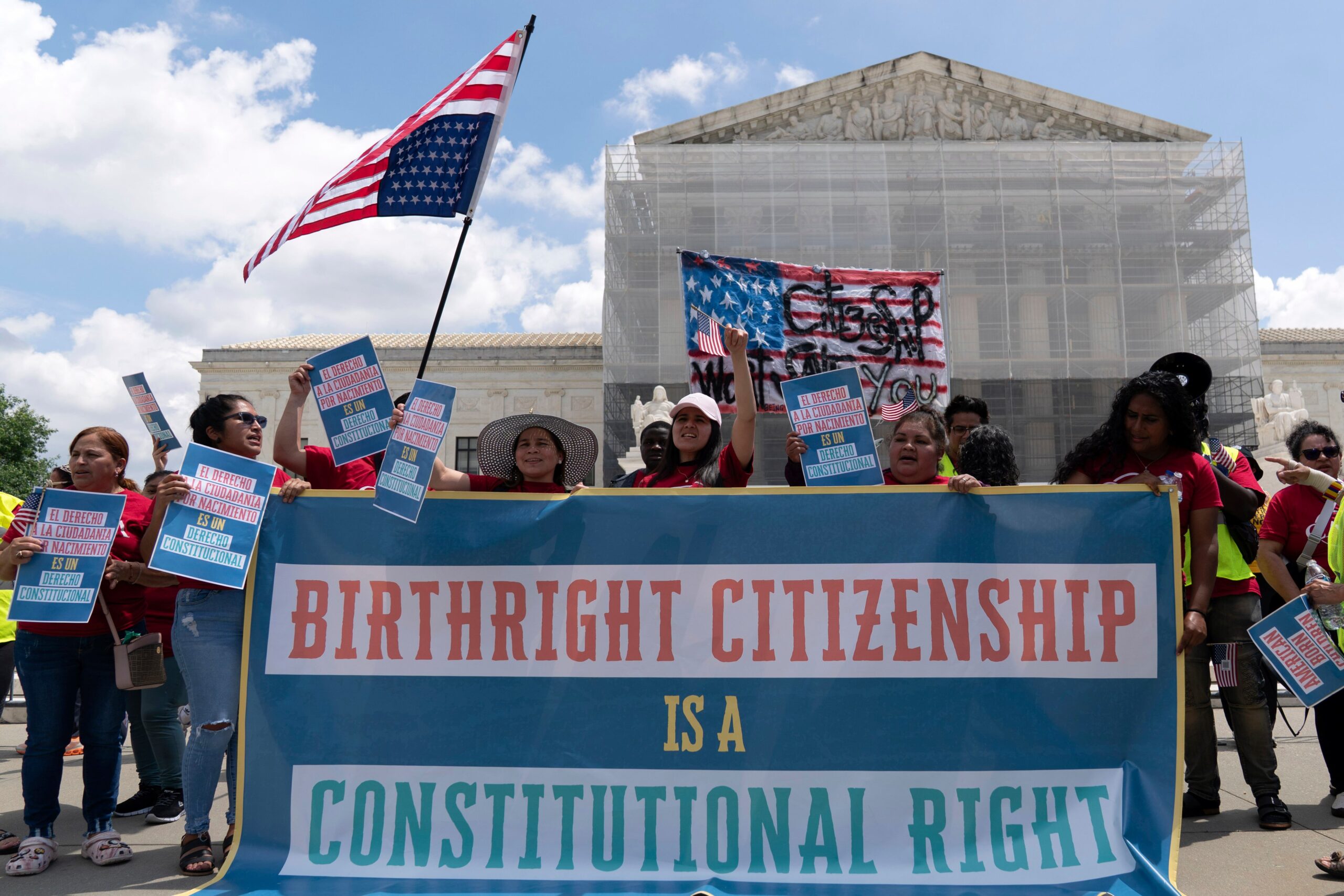By Miami Herald’s Jay Weaver (TNS)
While legal challenges to a White House executive order proceed in federal courts, the Trump administration’s daring attempt to overturn national injunctions that uphold the constitutional protection of birthright citizenship was granted by the U.S. Supreme Court on Friday.
In a 6-3 decision, the court overturned nationwide injunctions issued by federal judges in Massachusetts, Washington state, and Maryland. This eliminated the wide-ranging effect of their rulings that had blocked President Donald Trump’s Jan. 20 order, which aims to prevent the children of undocumented immigrants and visa holders from being born in the United States.
According to the court’s decision, the judges’ injunctions against Trump’s order only apply to the areas in which the groups filed their complaints, meaning that Trump’s order is in effect throughout the rest of the nation. The lower courts will now review the high court’s order to ascertain the ruling’s practical ramifications.
Court decisions known as nationwide injunctions prevent the federal government from implementing measures nationwide, not only for the plaintiffs. The Trump administration claimed that by blocking the executive branch from carrying out its plans, these injunctions amounted to judicial overreach.
The court’s decision did not address the merits of the president’s order, which goes against the 14th Amendment’s birthright citizenship principle—a precedent that hasn’t changed in over 125 years. Trump’s executive order was deemed flagrantly unlawful by federal judge John Coughenour, a Reagan appointee who issued one of the national injunctions from Seattle.
On Thursday, May 15, 2025, protesters outside the Supreme Court in Washington hoist a banner during a civic engagement. (Jose Luis Magana/AP Photo, file)AP
That problem was not directly addressed by the Trump administration. In an attempt to drastically alter the constitutional guarantee of birthright citizenship, the Justice Department instead requested in March that the Supreme Court limit a lower court’s power to impose a nationwide injunction. Attorneys for the Justice Department requested that lower courts be prohibited from halting Trump’s executive order that would restrict birthright citizenship nationwide.
The Trump administration stated in a March 13 submission to the Supreme Court that, in a perfect world, the current injunctions would only apply to anyone who filed a personal lawsuit against the federal government. However, the administration stated that the court may potentially stop the decision on a smaller scale, such as restricting the injunctions to the states and organizations that joined the individuals in the litigation.
In her motion to the Supreme Court, Justice Department lawyer Sarah Harris described the countrywide blocks as having reached epidemic proportions since Trump’s return to the presidency, stating that universal injunctions jeopardize the Executive Branch’s capacity to do its duties.
In short, the Trump administration sought the opinion of the country’s highest court, which Trump has greatly influenced, about a fundamental aspect of American immigration policy.
However, detractors said that these injunctions are required to stop unconstitutional acts from occurring across the country. They contended that Trump’s policies might take effect in places where cases haven’t been filed if the high court restricted national injunctions, leading to a patchwork of enforcement problems around the nation.
This might result in a cascade of lawsuits and general legal ambiguity, which may be the unstated goal of the Trump legal team.
Trump issued an executive order on his first day in office that prohibited children of temporary visa holders and undocumented immigrants from being citizens of the United States. The action deviated from the long-standing rule that all children born in the US are automatically citizens of the US, with the exception of diplomats’ offspring.
President Grover Cleveland attempted to prevent a Chinese American citizen who was born in the United States from returning to the country at the turn of the century, so undermining birthright citizenship.
This led to the 1898 Supreme Court case U.S. v. Wong Kim Ark, which established the 14th Amendment’s birthright citizenship basis. This precedent has remained unaltered for over 125 years.
However, the Trump administration contended that temporary visa holders and undocumented parents are not under U.S. jurisdiction, thus their children are not eligible for birthright citizenship.
More on the U.S. Supreme Court
-
Supreme Court rules in cases related to what children can see
-
Supreme Court preserves Obamacare s preventive health care coverage
-
Fees subsidizing phone, internet services are OK, Supreme Court rules
-
States can block Planned Parenthood from receiving Medicaid money: Supreme Court






